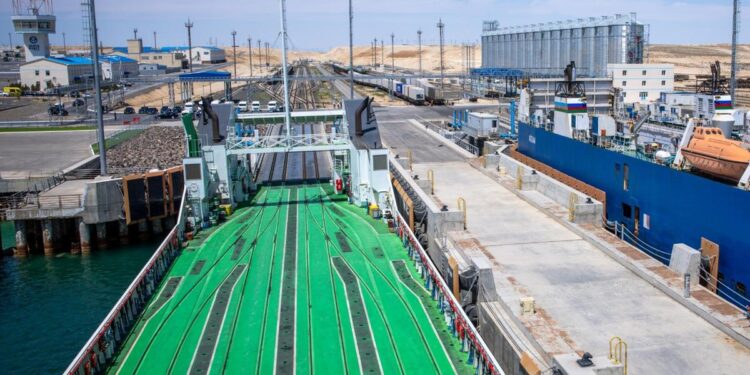Georgia’s ambition to become a primary transit hub along the Middle Corridor, the trade route connecting China and Central Asia with Europe, hinges on one major factor: the development of the Anaklia Deep-Sea Port. Without it, experts warn, the country risks falling behind its regional competitors and missing out on major economic opportunities.
The Middle Corridor has gained growing strategic importance as global supply chains shift, offering a faster and more secure alternative to traditional routes through Russia. However, despite its favorable geography, Georgia’s infrastructure remains insufficient to handle the increasing flow of goods.
Current port facilities, railway infrastructure and customs terminals are struggling to meet modern transit demands. The country’s rail system and rolling stock are outdated while limited port capacity restricts cargo volumes. Experts stress that without a deep-water port capable of accommodating large vessels, Georgia cannot fully integrate into the international logistics chain.
The Anaklia Deep-Sea Port, envisioned as the country’s largest maritime project, has long been seen as the missing link. Once operational, it would allow Georgia to handle large-scale cargo shipments, significantly increasing transit revenues, foreign investment and employment in the logistics sector.
In addition to physical infrastructure, the logistics industry faces a shortage of skilled professionals. The expansion of the Middle Corridor, observers note, will require stronger coordination between government and private companies to ensure workforce development, training and technological modernization.














